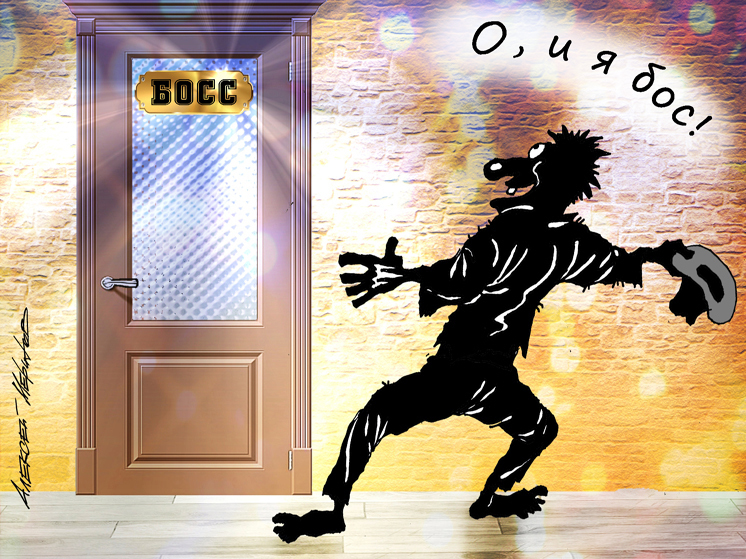Experts assessed the high-profile scenario for the revival of the labor market
Right before our eyes, Russia is being swept by a “wage revolution”, and this is becoming a new challenge for the economy, assures the famous analyst and economist at TsMAKP Dmitry Belousov. According to him, “high payments to military personnel today automatically set a benchmark for the labor market”: from now on, people will agree to work only for more than 200 thousand rubles a month, which have become commonplace for SVO participants. We found out whether this is true from labor market experts.
 < span itemprop="height" itemscope itemtype="https://schema.org/QuantitativeValue">
< span itemprop="height" itemscope itemtype="https://schema.org/QuantitativeValue">
At the end of 2023, real wages grew by 7.8%, outpacing overall economic dynamics (GDP growth was 3.6%). Real incomes of the population increased by 5.4%, consumption of goods and services — by 5.9%, writes Dmitry Belousov (by the way, the brother of First Deputy Prime Minister Andrei Belousov). The researcher has no doubt: after the end of hostilities, this trend will continue.
“Military personnel who received 200 thousand rubles a month or more will simply not return to their “old” jobs for 50–60 thousand and will obviously look for work that corresponds to their new social status,” the economist argues, proclaiming the imminent end of an era cheap labor. In the opinion of Dmitry Belousov, when this challenge is fully understood, “we can expect the emergence of a powerful incentive for technological modernization of production, robotization, and professional retraining of employees.”
By the end of 2024, the Center for Macroeconomic Analysis and Short-Term Forecasting expects an increase in real wages of 3.1–3.5%. Which, in turn, can provide an increase in real disposable income by 3–3.2%. However, we must not forget about the structural distortions that have occurred in the employment sector over the past few years and have resulted, in particular, in an unprecedentedly low level of unemployment. In February it was 2.8%, according to Rosstat. The provision of Russian companies with employees in the first quarter decreased to a minimum in the entire history of observations. Yes, in 2023, salaries made a noticeable leap, mainly due to a large budget impulse, government orders, and priority financial injections into the military-industrial complex. But who will guarantee that history will repeat itself now, that the wage funds of manufacturing enterprises will grow at the same pace? As the Central Bank notes in its April report “Regional Economy”, “business in 2024 is more restrained in assessing the possibilities of further increasing personnel costs.”
“Currently there are several hundred thousand people at the front,” says Alexei Zubets, a professor at the Financial University under the Government of the Russian Federation. – In principle, there are no such number of high-paying jobs in civilian life. In addition, there is no mass demobilization from the army: the SVO has not yet been completed.”
It is very likely that when they return, as veterans of the Northern Military District they will begin to demand (in the complete absence of knowledge and competencies) certain benefits, benefits, and positions in government bodies. But before giving SVO participants what they want, the state will have to at least organize their vocational training and retraining. In addition, Zubets notes, some of those who return from the front will lose relevance in the labor market for a number of reasons: these are outdated skills, the unwillingness of employers to welcome them with open arms (having fired newly hired workers), and the characteristic post-traumatic syndrome.
“There is a certain element of truth in Dmitry Belousov’s conclusions,” believes, for his part, Pavel Kudyukin, a member of the Council of the Confederation of Labor of Russia. – Indeed, as soon as a sharp increase in wages begins in one sector of the economy, others often also begin to catch up. But this is far from a universal rule. The situation is fraught with even greater segmentation of the labor market: some industries will prosper financially — due to government orders and budget money. And others, deprived of this “golden stream”, will face a deterioration in the quality of the workforce and stagnant wages.”
In addition, the SVO will end sooner or later, international tension will weaken, and accordingly, the defense industry will lose its current role. In the military-industrial complex sector, cuts will begin, wages will at least be frozen, which carries risks.
“I don’t really understand where employers will get the resources to pay a conditional 200 thousand to those who previously received 50 thousand? – says leading researcher at INION RAS Sergei Smirnov. – In addition, the very definition of “salary revolution” sounds unconvincing. A revolution is an event in which the broad masses are involved, as in 1917. And now we are talking about several hundred thousand people participating in the SVO and receiving decent money by Russian standards. That is, about a rather narrow social category.”


